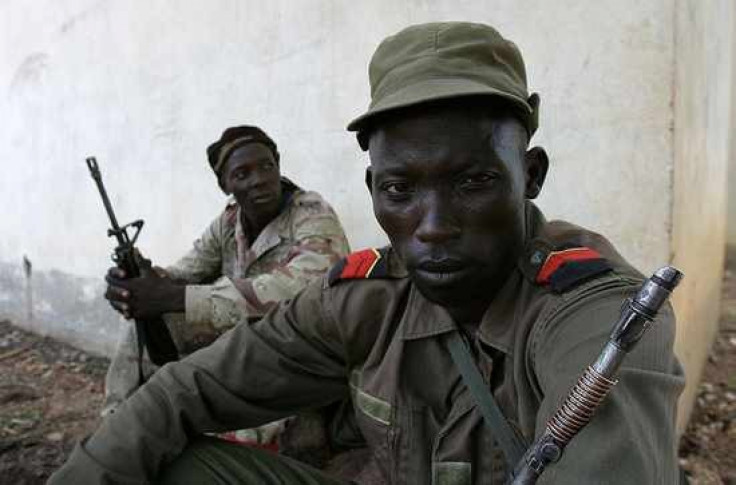Humanitarian Crisis Develops As Rebels In Central African Republic Advance Toward Bangui

The situation in the Central African Republic is growing more precarious by the day as an insurgent coalition advances toward the capital city of Bangui, despite peace talks to be held this week in Libreville, Gabon.
The rebels seized at least two more cities this weekend, and South Africa has stepped into the fray with a promise to send 400 troops.
“[South African] President Jacob Zuma has authorised the employment of 400 South African National Defence Force (SANDF) personnel to the Central African Republic (CAR), to render support in fulfilment of an international obligation of the Republic of South Africa towards the CAR. The employment is for the period of 02 January 2013-31 March 2018,” Pretoria said in an official statement.
South African soldiers will join troops from several other African nations, which are meant to bolster the notoriously weak, fragmented army of the CAR.
The advancing insurgents call themselves "Seleka," which means "alliance" in the Sangho lingua franca. The group consists of members of several older rebel factions, some of whom were absorbed into the army following similar insurgencies in years past.
Seleka is demanding that the administration in Bangui, led by President Francois Bozize, abide by the rules of previous peace agreements. Those accords, formalized between 2007 and 2011, aimed to absorb the insurgents into the national army and pay them accordingly, but rebels claim the administration has not held up its end of the bargain.
Seleka also decries the lack of development in the country, which is poverty-stricken despite CAR’s wealth of natural resources, including diamonds, gold, oil, timber, and uranium.
The insurgents have been making their way south toward Bangui since Dec. 10, and have already overtaken major cities, including Bambari, the country’s third-largest city, and Bria, a major site for diamond mining.
Peace talks are scheduled to begin in Libreville on Tuesday, but the rebels have not slowed their advance ahead of these negotiations.
"The rebels took two towns near Bambari," Territorial Administration Minister Josue Binoua told Agence France-Presse (via Times Live in South Africa) Sunday. "This shows their intent to wage war even during negotiations.”
Bozize has asked for intervention by France and the U.S., but neither has offered military assistance. The president has reason to fear for his administration: CAR has been plagued by instability and frequent coups since it gained independence from France in 1960. Bozize himself ascended to power in 2003 by way of a military coup supported by neighboring Chad.
The current turmoil has engendered a humanitarian crisis for the people of the Central African Republic. National security has always been quite weak, and the insurgents have taken advantage of that fact to assert brutal control over civilians in their path.
The United Nations Office for the Coordination of Humanitarian Affairs issued a dire situation report on Jan. 2.
“There are serious concerns about the protection of civilians amid reports of widespread looting and violence,” it said. “An estimated 316,000 people are living in the affected areas, and some 700,000 persons in Bangui are at further risk of an escalation in fighting.”
Child recruitment and sexual abuses have been reported as the rebels make their way toward Bangui. And the insurgency has hindered humanitarian-aid workers in the region, further endangering civilians’ safety.
© Copyright IBTimes 2024. All rights reserved.












